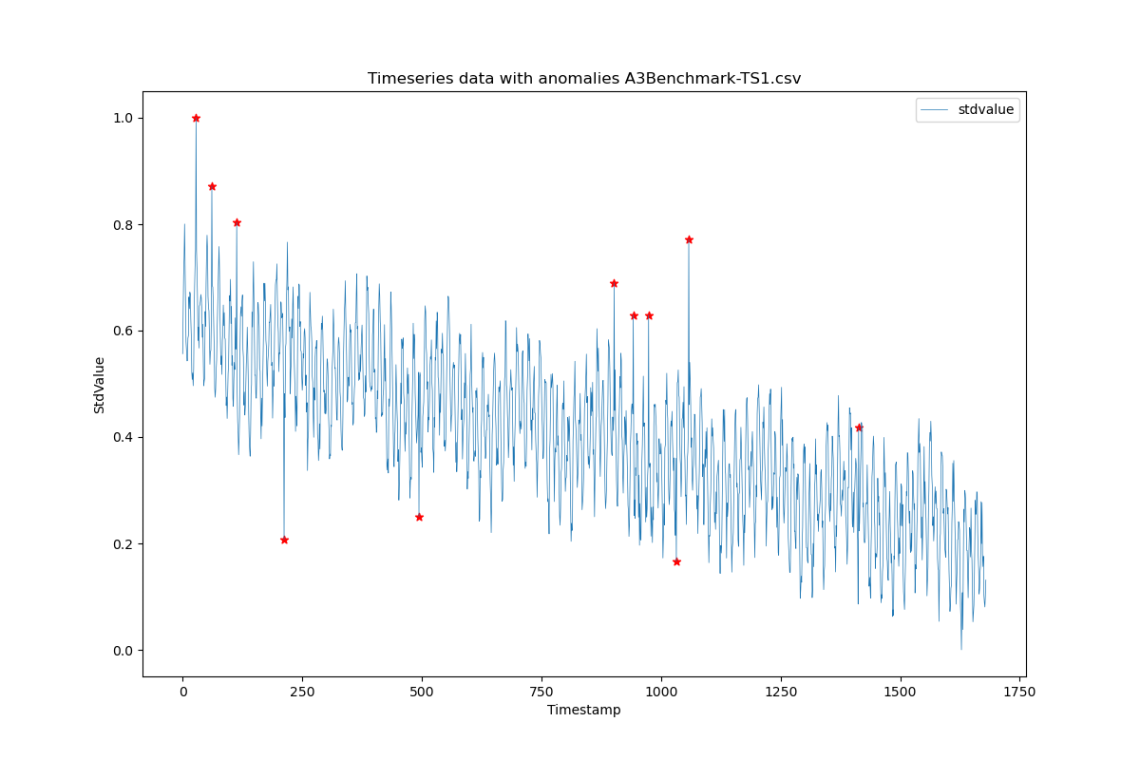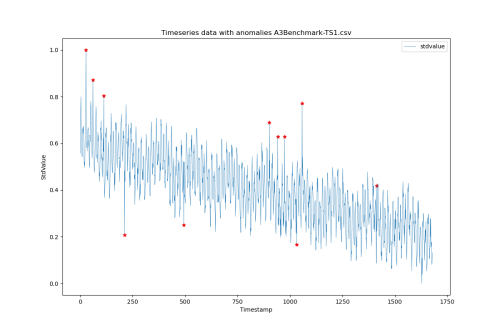AIPaper
AI论文
-
dtaianomaly A Python library for time series anomaly detection
Abstract
dtaianomaly is an open-source Python library for time series anomaly detection, designed to bridge the gap between academic research and real-world applications. Our goal is to (1) accelerate the development of novel state-of-the-art anomaly detection techniques through simple extensibility; (2) offer functionality for large-scale experimental validation; and thereby (3) bring cutting-edge research to business and industry through a standardized API, similar to scikit-learn to lower the entry barrier for both new and experienced users. Besides these key features, dtaianomaly offers (1) a broad range of built-in anomaly detectors, (2) support for time series preprocessing, (3) tools for visual analysis, (4) confidence prediction of anomaly scores, (5) runtime and memory profiling, (6) comprehensive documentation, and (7) cross-platform unit testing.
The source code of dtaianomaly, documentation, code examples and installation guides are publicly available at https://github.com/ML-KULeuven/dtaianomaly.
Keywords: Python, open source, time series, anomaly detection, data mining
-
Eliza: A Web3 friendly AI Agent Operating System
AI Agent, powered by large language models (LLMs) as its cognitive core, is an intelligent agentic system capable of autonomously controlling and determining the execution paths under user’s instructions. With the burst of capabilities of LLMs and various plugins, such as RAG, text-to-image/video/3D, etc., the potential of AI Agents has been vastly expanded, with their capabilities growing stronger by the day. However, at the intersection between AI and web3, there is currently no ideal agentic framework that can seamlessly integrate web3 applications into AI agent functionalities. In this paper, we propose Eliza, the first open-source web3-friendly Agentic framework that makes the deployment of web3 applications effortless. We emphasize that every aspect of Eliza is a regular Typescript program under the full control of its user, and it seamlessly integrates with web3 (i.e., reading and writing blockchain data, interacting with smart contracts, etc.). Furthermore, we show how stable performance is achieved through the pragmatic implementation of the key components of Eliza’s runtime. Our code is publicly available at this https URL.
-
Curie: Toward Rigorous and AutomatedScientific Experimentation with AI Agents
Abstract:
Scientific experimentation, a cornerstone of human progress, demands rigor in reliability, methodical control, and interpretability to yield meaningful results. Despite the growing capabilities of large language models (LLMs) in automating different aspects of the scientific process, automating rigorous experimentation remains a significant challenge. To address this gap, we propose Curie, an AI agent framework designed to embed rigor into the experimentation process through three key components: an intra-agent rigor module to enhance reliability, an inter-agent rigor module to maintain methodical control, and an experiment knowledge module to enhance interpretability. To evaluate Curie, we design a novel experimental benchmark composed of 46 questions across four computer science domains, derived from influential research papers, and widely adopted open-source projects. Compared to the strongest baseline tested, we achieve a 3.4× improvement in correctly answering experimental questions. Curie is open-sourced at https://github.com/Just-Curieous/Curie.
-
Native Sparse Attention Hardware-Aligned and NativelyTrainable Sparse Attention
-
Deep learning
-
Attention is all you need





